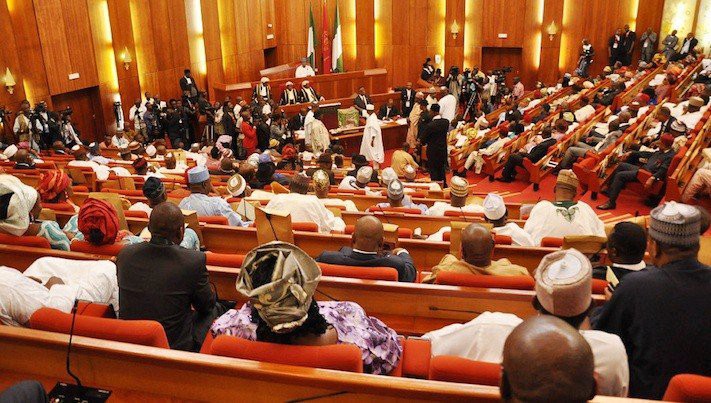The Nigerian National Assembly has proposed establishing over 200 new universities despite the ongoing shortage of lecturers across the country.
Diaspora digital media (DDM) reports that this decision has sparked concerns among education stakeholders, who fear it may worsen the existing challenges facing the nation’s higher education system.
According to the National Universities Commission (NUC), Nigeria currently has 278 universities, including 64 federal, 67 state, and 147 private institutions.
Despite this number, the commission insists that Nigeria still needs more universities to cater to its rapidly growing population of over 200 million.
Countries with similar populations, such as Indonesia, have nearly 2,000 universities, providing more access to higher education for their citizens.
In contrast, the United Kingdom, with a population of about 67 million, has 130 universities and over 2.8 million students.
Meanwhile, Nigerian universities struggle with infrastructural deficiencies, inadequate funding, and a severe shortage of qualified lecturers.
The Academic Staff Union of Universities (ASUU) has repeatedly raised concerns over lecturers leaving the country due to poor working conditions.
For example, Federal University, Gusau, Zamfara, reportedly needs at least 1,000 lecturers to adequately staff its academic departments.
Similarly, the University of Lagos lost 27 lecturers from two faculties, while over 100 staff members at the University of Uyo relocated abroad.
These departures highlight the increasing trend of brain drain among Nigerian academics seeking better opportunities in other countries.
Concerns Over Expansion
Despite these issues, the federal government continues approving the establishment of more universities across different states.
Recently, President Bola Tinubu signed bills creating the Federal University of Agriculture and Development Studies in Iragbiji, Osun State.
He also approved the Federal University of Technology and Environmental Sciences in Iyin Ekiti, Ekiti State.
Additionally, the Federal University of Environment and Technology in Tai, Rivers State, received government approval for its establishment.
The government also converted NOK University, Kachia, Southern Kaduna, into the Federal University of Applied Sciences, Kachia.
Furthermore, 11 new private universities have been approved, adding to Nigeria’s growing list of tertiary institutions.
While expanding access to education is important, experts warn that these new universities may struggle with the same existing problems.
Many universities in Nigeria lack basic infrastructure such as well-equipped libraries, engineering workshops, and standard research laboratories.
Most private universities operate with fewer than 1,000 undergraduate students due to limited facilities and low enrollment rates.
Meanwhile, over 1.5 million candidates apply for university admission annually, but existing institutions cannot accommodate them due to space constraints.
This situation underscores the need for improved funding and infrastructural development rather than creating additional, poorly equipped universities.
Funding and Budgetary Allocation
Nigeria’s 2025 national budget allocated N3.52 trillion to education, representing only 7.3% of the total national budget.
This allocation is far below the United Nations’ recommended benchmark of 15-20% for education sector funding.
Insufficient funding affects research, lecturer salaries, laboratory development, and overall quality of higher education in Nigerian universities.
Due to poor remuneration, many lecturers struggle financially, prompting them to seek better-paying opportunities abroad.
The continuous brain drain among Nigerian academics further weakens the country’s capacity to deliver quality higher education.
As a result, lecturers handle excessive workloads, which negatively impacts the quality of teaching and student learning experiences.
Many Nigerian universities lack well-equipped lecture halls, student hostels, and digital learning facilities needed for modern education.
Without significant investment, these challenges will persist and further diminish the global ranking of Nigerian universities.
Alternative Solutions
Rather than expanding the number of universities, experts suggest improving the quality of existing institutions through better funding and infrastructure.
Investment should focus on modernizing university facilities, upgrading libraries, and enhancing engineering and medical training institutions.
There is also a need to recruit and retain high-quality lecturers by offering competitive salaries and improved working conditions.
Government policies should encourage partnerships between Nigerian universities and internationally recognized institutions for research collaborations.
This approach will help attract foreign students and generate revenue through higher education exports, strengthening the sector.
Scholarships and grants should be increased to support students and encourage academic excellence in tertiary education.
Additionally, investing in vocational and technical education will provide alternative career paths for students who cannot access universities.
Conclusion
Higher education plays a crucial role in national development, requiring sustained investment and strategic planning.
Countries that have successfully developed knowledge-based economies prioritize funding and research in their university systems.
Nigeria must focus on strengthening existing universities instead of multiplying underfunded and poorly staffed institutions.
A well-funded and adequately staffed university system will produce graduates who can compete globally in various professional fields.
For sustainable educational progress, the National Assembly must advocate for better policies that prioritize quality over quantity in higher education.







